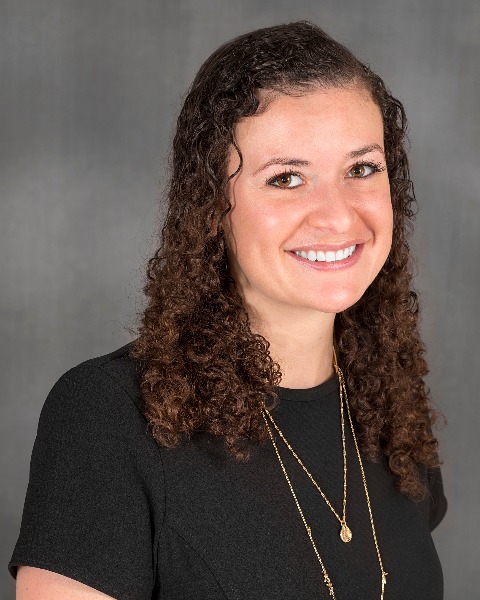Back
Medical Education: Resident
Category: Abstract Submission
Medical Education 13 - Medical Education: Resident IV
264 - Resident Participation in Pediatric Phone Triage: Exploring Faculty and Resident Perceptions and Experiences
Monday, April 25, 2022
3:30 PM – 6:00 PM US MT
Poster Number: 264
Publication Number: 264.419
Publication Number: 264.419
Meghan M. OConnor, University of Utah Department of Pediatrics, Salt Lake City, UT, United States; Donna H. Ziegenfuss, University of Utah, Salt Lake City, UT, United States; Jennifer Ellzey, University of Utah School of Medicine, Salt Lake City, UT, United States; Edward M. Holloway, University of Utah School of Medicine, Salt Lake City, UT, United States; Saria Novoa, University of Utah School of Medicine, Salt Lake City, UT, United States; Gregory J. Schoonover, University of Utah School of Medicine, Salt Lake City, UT, United States; Joni Hemond, University of Utah School of Medicine, Salt Lake City, UT, United States

Meghan M. OConnor, MD
Assistant Professor
University of Utah Department of Pediatrics
Salt Lake City, Utah, United States
Presenting Author(s)
Background: Pediatric residents are expected to perform phone triage. However, residency programs often lack formalized curricula, and faculty and resident perceptions of phone triage and the residents’ abilities to provide advice and disposition recommendations over the phone has not been comprehensively studied.
Objective: The goal of this study was to improve understanding of resident experiences with phone triage to assess perceived gaps in knowledge and skills, identify barriers, and determine education needs.
Design/Methods: Using a constructivist grounded theory approach, the investigators conducted semi-structured interviews with 7 supervising faculty and 10 residents regarding their experiences participating in a phone triage system for a general pediatric clinic. Qualitative analysis of the data was performed in an iterative fashion.
Results: Four major themes emerged. 1) Residents perceive gaps in knowledge and skills. Residents and faculty expressed confidence in the residents’ medical knowledge and abilities to apply previously learned information to assess common pediatric complaints over the phone and provide home care recommendations for most concerns. However, residents felt discomfort in addressing certain topics, including prescription changes, rashes, and mental health concerns. In addition, residents reported low confidence in providing disposition recommendations after-hours when they felt the patient was “borderline”. 2) System process issues are common barriers. Residents felt poorly equipped to address operational issues due to lack of well-written instructions and poorly defined expectations. 3) Learning occurs in the absence of formalized curricula. Residents and faculty consistently reported a perceived educational benefit to participating in the call system. Although faculty felt they provided feedback and facilitated case-based discussions, the residents found much of their learning came from peer instruction and practice. 4) Phone triage curriculum is desired. Both faculty and residents expressed interest in a curriculum focused on common chief complaints, obtaining a history in the absence of visual cues, identifying red flags, and communication. All participants recommended case-based practice with immediate feedback.Conclusion(s): Pediatric residents and faculty recognize the educational value of phone triage and find that development of the residents’ skills occurs with practice. However, gaps in knowledge and barriers can inhibit their learning. Findings from our study could be used to develop curricula that addresses these issues.
Objective: The goal of this study was to improve understanding of resident experiences with phone triage to assess perceived gaps in knowledge and skills, identify barriers, and determine education needs.
Design/Methods: Using a constructivist grounded theory approach, the investigators conducted semi-structured interviews with 7 supervising faculty and 10 residents regarding their experiences participating in a phone triage system for a general pediatric clinic. Qualitative analysis of the data was performed in an iterative fashion.
Results: Four major themes emerged. 1) Residents perceive gaps in knowledge and skills. Residents and faculty expressed confidence in the residents’ medical knowledge and abilities to apply previously learned information to assess common pediatric complaints over the phone and provide home care recommendations for most concerns. However, residents felt discomfort in addressing certain topics, including prescription changes, rashes, and mental health concerns. In addition, residents reported low confidence in providing disposition recommendations after-hours when they felt the patient was “borderline”. 2) System process issues are common barriers. Residents felt poorly equipped to address operational issues due to lack of well-written instructions and poorly defined expectations. 3) Learning occurs in the absence of formalized curricula. Residents and faculty consistently reported a perceived educational benefit to participating in the call system. Although faculty felt they provided feedback and facilitated case-based discussions, the residents found much of their learning came from peer instruction and practice. 4) Phone triage curriculum is desired. Both faculty and residents expressed interest in a curriculum focused on common chief complaints, obtaining a history in the absence of visual cues, identifying red flags, and communication. All participants recommended case-based practice with immediate feedback.Conclusion(s): Pediatric residents and faculty recognize the educational value of phone triage and find that development of the residents’ skills occurs with practice. However, gaps in knowledge and barriers can inhibit their learning. Findings from our study could be used to develop curricula that addresses these issues.
